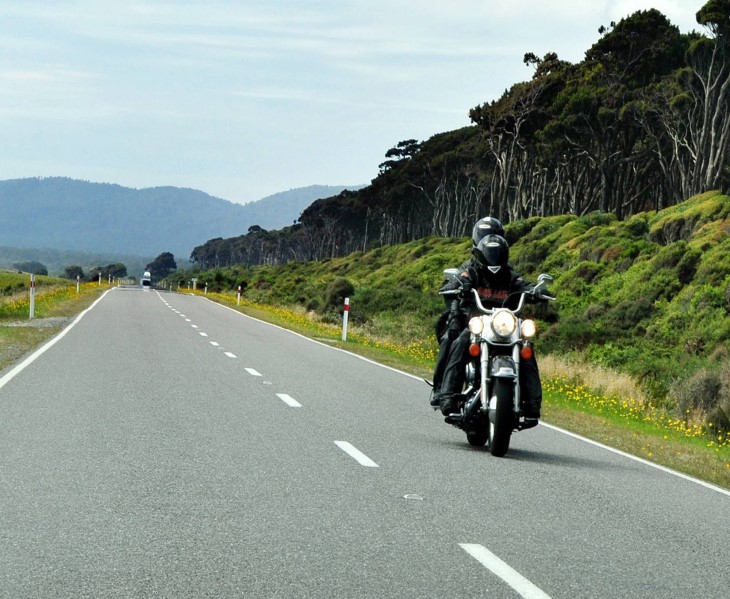Motorcycle Awareness Month: Celebrating a love of riding safely

Motorcycle Awareness Month is run by ACC and the Motorcycle Safety Awareness Council (MSAC). It celebrates the start of the motorbike-riding season and encourages riders to get ride ready.
Spring is the perfect time to be thinking about motorcycle safety.
Motorcycle Awareness Month (MAM) was launched when some of the riders at Ride Forever were looking at the crash statistics from 2017. They outlined that many riders hurt themselves when they ride their bike for the first time, after a long winter break.
MAM is promoted by ACC, the Motorcycle Safety Advisory Council (MSAC), NZ Police, local councils and NZ Transport Agency Waka Kotahi.
Every year from September, ACC sees a spike in motorcycle crashes, injuries claims and fatalities.
Our injury prevention leader James Whitaker says more than 50 per cent of motorcyclist riders de-register and put their bikes away over the winter months but that changes in spring.
“As we come into September, it’s a great time of year and we want motorbike riders to celebrate their love of riding,” James says.
“As you get back on the bike, make sure you’re ready to get the most out of the riding season.”

Motorbike injuries on the rise
In 2023, we accepted 4,487 motorbike-related injuries at a cost of $133 million to help recover. This was the highest number of injuries and the highest cost in the past five years.
Data shows 21 New Zealanders died in a motorbike accident in 2023 and up until July this year there have been 12 fatalities.
James says motorbike riders and car drivers are both responsible for reducing motorcycle fatalities and injuries.
“We’re still not getting the message,” he says.
Riders need to make sure their gear and bikes are in good condition before hitting the roads, while car drivers should keep an eye out for motorcyclists, particularly at intersections.
From 2016 to 2020, there were 2,758 crashes involving a motorcycle or moped at urban intersections, Waka Kotahi (NZ Transport Agency) data shows. Of those, 538 involved serious injury and there were 38 fatalities.
Car drivers are at fault in 90 per cent of crashes between cars and motorbikes at urban intersections, Ministry of Transport figures show.
“We’ve all got to be more aware of the dangers at intersections,” James says.
“Look again for motorcyclists, not just the gap. Be aware of your blind spots.”

Learning to Ride Forever
Riders who’ve completed a Ride Forever course are up to 50 per cent less likely to lodge a motorcycle-related accident claim than non-trained riders.
To date, around 16,000 riders have completed at least one Rider Forever course.
Taking at least one Ride Forever course reduced the incidence of having a crash by 27 per cent and the associated claims cost by 45 per cent.
In other words, Ride Forever-trained riders crash less often, and the crashes they do have are, on average, less severe.

Motorcycle Awareness Month
ACC recommends motorbike riders do three things:
• Check your bikes are well-maintained
• Ensure your gear is up to scratch
• Refresh your skills by completing an ACC Ride Forever coaching programme
For more information and to find a course near you, please visit the Ride Forever website.




